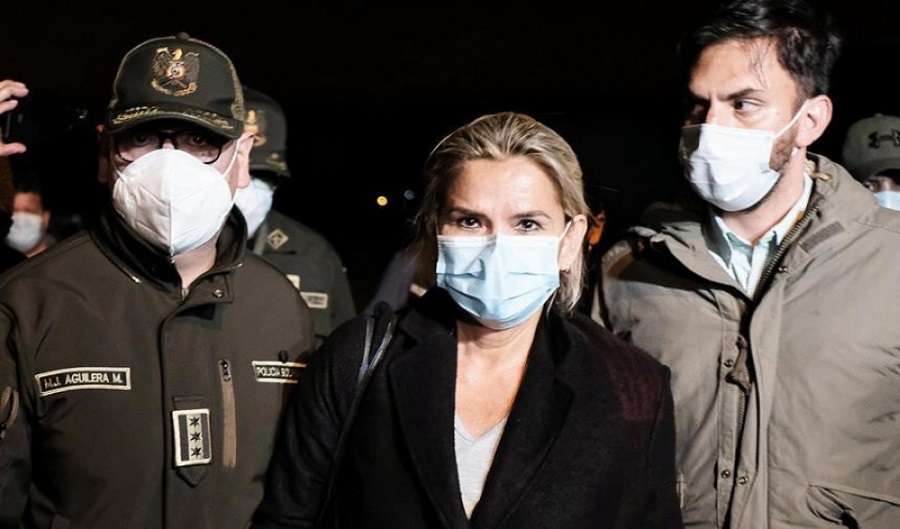RIO DE JANEIRO, BRAZIL – The denunciation is part of a joint statement issued on Sunday by opposition parties Comunidad Ciudadana of ex-president Carlos Mesa, and Creemos of the governor of the eastern region of Santa Cruz, Luis Fernando Camacho, together with the Santa Cruz Civic Committee and the National Committee for the Defense of Democracy (CONADE).
The document states these sectors’ position for compliance with the recommendations of the Interdisciplinary Group of Independent Experts’ (GIEI) report sent by the Inter-American Commission on Human Rights (IACHR) on the 2019 crisis in Bolivia.

Bolivians “do not have a Justice system that defends the people, on the contrary, this has become a political weapon of intimidation, persecution and imprisonment,” denounced the parties and organizations.
They also accused the Executive of unwillingness to comply with the GIEI’s recommendations to “urgently change” the Justice system in order to have “independent, impartial, suitable prosecutors and judges with high credibility and citizen confidence.”
“This is the only way for investigations and criminal prosecution for human rights violations, pointed out in the same report, to result in a true act of justice, especially in relation to the loss of human lives, under the premise that all should be equal before justice,” the statement said.
The opposition accused Arce’s government of wanting to maintain the “submission and dependence” of Justice to the Executive “with political and repressive purposes.”
They also considered that criminal proceedings initiated against detractors of the ruling Movimiento al Socialismo (MAS) are “in fact political-judicial lynching actions” while Justice “files and dismisses cases” that involve MAS members.
In order to achieve “social peace and harmony” in the country, these sectors considered “indispensable” for investigations into the 2019 events must be conducted with a “renewed” Prosecutor’s Office and Judiciary and the independence and suitability of its operators must be guaranteed.
They also requested that imprisoned opposition members, whom they consider “political prisoners,” defend themselves in freedom and that “detentions for political reasons” should cease.
GOVERNMENT POSITION
Arce’s government through Minister of Justice Iván Lima said that the change of Justice operators proposed by the opposition is a “judicial coup d’état” which, in his opinion, seeks impunity.
Lima argued that Mesa’s party with this judicial reform aims to condition support to the approval in Parliament of the trials of responsibility against the interim management of Jeanine Áñez for the 2019 events.
“His political goal is impunity, silence, impacting the lives of Bolivians and disrespecting the pain of all these families in the solution of justice,” said the Minister.
The GIEI’s report presented this month concluded that there were “serious human rights violations” in the country during the 2019 crisis.
The group considered it “fundamental” to advance in investigations and prosecutions for those events, although it also warned about “serious deficiencies” of the Bolivian State to guarantee the “independence and autonomy” of the Judiciary and the Prosecutor’s Office.
Bolivia is embroiled in a controversy between the ruling party, which claims that Evo Morales was overthrown by a coup d’état, and its detractors, who maintain that the crisis was a consequence of allegations of fraud against the ex-president in the failed 2019 general elections which were later annulled.
Ex-interim president Jeanine Áñez has been imprisoned since March, whose health condition has deteriorated, investigated at the request of the government in the so-called “coup d’état” case.

